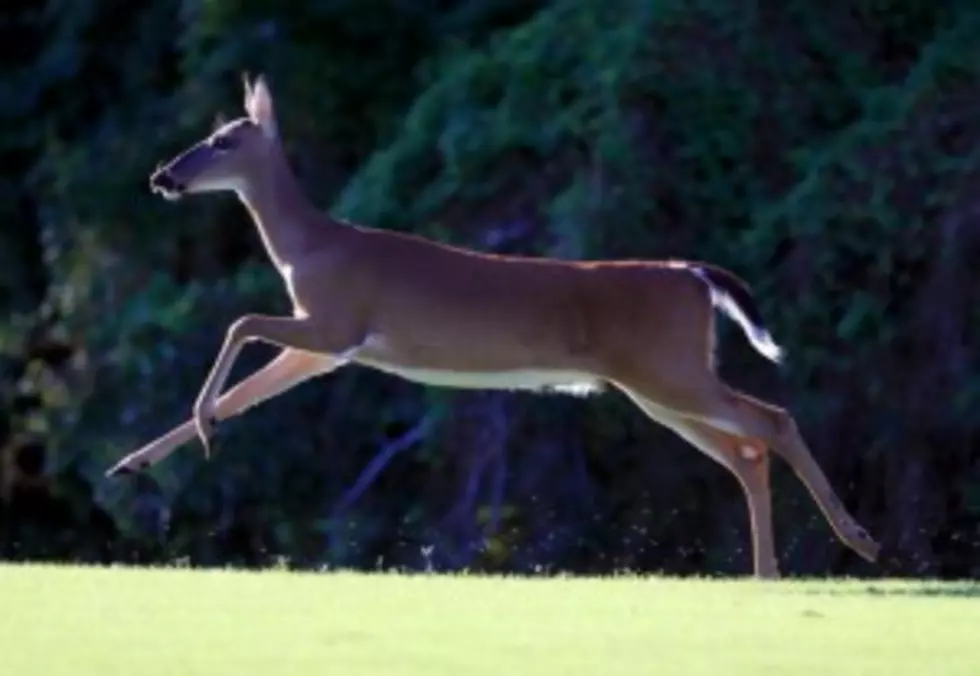
Deer Disease Prompts Statewide Advisory
Uh-oh, Bambi's sick.
A virus that's infecting deer in New Jersey is significant enough for New Jersey environmental officials to issue an advisory to hunters, hikers and everyone who enjoys the outdoors.
The DEP says it can't be transmitted to humans but might infect livestock, and will diminish as temperatures decline, but right now it's been confirmed in three counties and five more await test results.
Epizootic Hemorrhagic Disease (EHD) is described as a common viurus that afflicts deer are bitten by infected midge flies. It's an ugly way to go.
Infected deer usually die within five to 10 days, say environmental experts. Initially the deer lose their appetites and fear of people.
After that, they weaken, begin drooling and breathing heavily, foaming at the mouth and nose, and develop difficulty standing. The remains of dead deer may appear to have no signs of trauma.
EHD Type Two has been confirmed in Gloucester, Salem and Warren Counties. Monmouth, Cape May, Cumberland, Camden and Middlesex County samples are under review and samples are being collected in Burlington County. Outbreaks of the strain erupted in 2007 from Morris to Salem Counties, again in Salem in 2010 and in spots through central and northern Jersey in 2011.
State officials underscore that humans are not affected if they're bitten by infected flies or if they handle remains of infected deer. They do, however, advise against eating meat of infected game animals. Infected livestock might exhibit symptoms similar to other common diseases.
A study by the U.S. Geological Survey blames outbreaks this year on widespread drought and high summer temperatures which created muddy conditions in which midges breed.
New Jersey Division of Fish and Wildlife Director David Chanda notes that immunity might be low because a large outbreak hasn't been recorded in five years. Cold air temperatures, he says, kill the midge species that carries the virus.
Report animals displaying symptons to Bill Stansley at the Office of Fish and Wildlife Health Forensics: 908-236-2118. The Bureau of Wildlife Management's regional officers are: Northern region, Carole Stanko or Dan Roberts, 908-735-7040; Central region, Jodi Powers, 609-259-6965; Southern region, Joe Leskie, 609-748-2043, or Carole Stanko at her Northern region number.
Livestock owners who suspect any infections can reach the New Jersey State Veterinarian's Office, 609-671-6400.
More From 92.7 WOBM









